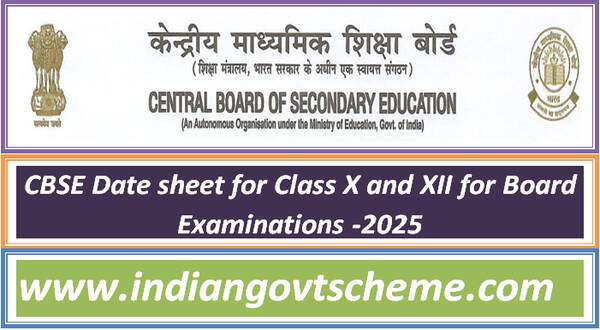CBSE : Multilingual Education and using mother tongue as a medium of instruction.
CBSE/DIR(ACAD)/2023
July 21, 2023
Circular No: Acad-84/2023
All the Heads of Schools Affiliated to CBSE
Subject: Multilingual Education and using mother tongue as a medium of instruction.
Multilingual education has been widely recognized as a valuable approach to fostering linguistic diversity, cultural understanding, and academic success among students. The National Education Policy 2020, in paragraph 4.12, emphasizes the significant cognitive advantages of multilingualism for young learners, particularly when they are exposed to multiple languages from foundational stage, with a specific focus on their mother tongue. The policy strongly advocates for utilizing the home language, mother tongue, local language, or regional language as the medium of instruction whenever feasible, at least until Grade 5, but preferably extending till Grade 8 and beyond.

The implementation of multilingual education and the utilization of the mother tongue as a medium of instruction present several challenges including the availability of skilled teachers capable of teaching in multilingual settings, the creation of high-quality multilingual textbooks, and the limited time available, especially in two-shift government schools, as multilingual education demands additional instructional time allocation.
In view of above challenges, the Ministry of Education, Government of India has taken several measures to actualize education through Indian languages medium on ground. One of the major steps taken now is the direction by the Ministry of Education to NCERT for preparing new textbooks through 22 scheduled Indian languages. The NCERT has taken this serious task on highest priority so that textbooks in 22 scheduled languages can be made available to all students from next sessions.
Higher Education has also started gearing up to produce textbooks through Indian languages, and initiate learning-teaching process through Indian language mediums in addition to English medium, and to conduct examination through Indian languages as well. The textbooks in technical education, medical education, vocational education, skill education, law education, etc. are now coming through Indian languages.
Since higher education has started responding to this need then school education has to become its foundation. The approach towards medium of instruction should be a continuity from school education to higher education. Therefore, the schools affiliated to CBSE need to play a vital role in this great endeavour by offering education through Indian languages.
In view of the above initiatives taken to facilitate education through Indian languages, the CBSE affiliated schools may consider using Indian languages, as enumerated in the Schedule 8 of the Indian Constitution, as the medium of Instruction from Foundational Stage till end of Secondary Stage i.e. from pre-primary classes till class XII as an optional medium in addition to other existing options. Schools may explore the available resources, consult with experts in the field, and collaborate with other schools to share best practices to make multilingual education in CBSE schools a reality.
Dr. Joseph Emmanuel
Director (Academics)
Copy to the respective Heads of Directorates, Organizations and Institutions as indicated below with a request to disseminate the information to all the schools under their jurisdiction:
1. The Commissioner, Kendriya Vidyalaya Sangathan,18 Institutional Area, Shaheed Jeet Singh Marg, New Delhi-16
2. The Commissioner, Navodaya Vidyalaya Samiti, B-15, Sector-62, Institutional Area, Noida- 201309
3. The Secretary, Eklavya Model Residential Schools (EMRS), Ministry of Tribal Affairs, Government of India.
4. The Secretary, Sainik Schools Society, RoomNo.101, D-1Wing, Sena Bhawan, New Delhi-110001.
5. The Chairman, Odisha Adarsha Vidyalaya Sangathan, N-1/9, Near Doordarshan Kendra, PO Sainik School Nayapalli, Bhubaneswar, Odhisha-751005.
6. The Director of Education, Directorate of Education, Govt. of NCT of Delhi, Old Secretariat, Delhi- 110054
7. The Director of Public Instructions(Schools), Union Territory Secretariat, Sector 9, Chandigarh-160017
8. The Director of Education, Govt. of Sikkim, Gangtok, Sikkim–737101
9. The Director of School Education, Govt. of Arunachal Pradesh, Itanagar–791111
10. The Director of Education, Govt. of A&N Islands, Port Blair–744101
11. The Director of Education, S.I.E., CBSE Cell, VIP Road, Junglee Ghat, P.O. 744103, A&N Island
12. The Director, Central Tibetan School Administration, ESSESS Plaza, Community Centre, Sector-3, Rohini, Delhi.
13. The Additional Director General of Army Education, A–Wing, Sena Bhawan, DHQ, PO, New Delhi-110001
14. The Secretary AWES, Integrated Headquarters of MoD (Army), FDRC Building No. 202,Shankar Vihar (Near APS), Delhi Cantt-110010
15. All Regional Directors/Regional Officers of CBSE with the request to send this circular to all the Heads of the affiliated schools of the Board in their respective regions
16. The Director of School Education, Ladakh, Room No. 101, 102 Ground Floor, Council Secretariat, Kurbathang, Kargil-Ladakh
17. The Director of School Education, Andhra Pradesh, 3rd Floor, B block, Anjaneya Towers, VTPS Rd, Bhimaraju Gutta, Ibrahim patnam, Andhra Pradesh PIN : 521456
18. All Joint Secretary/Deputy Secretary/Under Secretary/SPS/Analyst, CBSE
19. All Head(s)/In-Charge(s),Centre of Excellence, CBSE
20. In charge IT Unit with the request to put this Circular on the CBSE Academic Website
21. The Head (Media &Public Relations),CBSE
22. DS to Chairperson, CBSE
23. SPS to Secretary, CBSE
24. SPS to Director (Information Technology),CBSE
25. PPS to Controller of Examinations, CBSE
26. SPS to Director (Skill Education),CBSE
27. PPS to Director (Professional Examinations),CBSE
28. PS to Director (Training), CBSE
29. PPS to Director (CTET), CBSE
नोट :- हमारे वेबसाइट www.indiangovtscheme.com पर ऐसी जानकारी रोजाना आती रहती है, तो आप ऐसी ही सरकारी योजनाओं की जानकारी पाने के लिए हमारे वेबसाइट www.indiangovtscheme.com से जुड़े रहे।
*****

